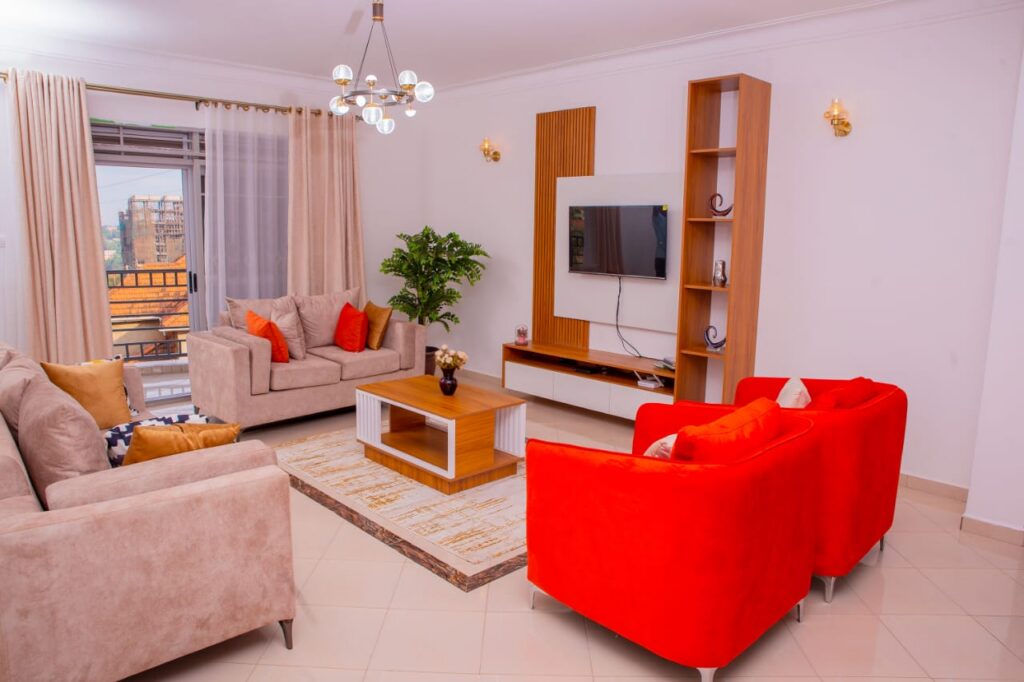Is Airbnb Arbitrage Profitable in Uganda?
As a virtual Airbnb assistant, I normally get questions like; Is Airbnb arbitrage profitable in Uganda? Is it worth it? Can I use someone else’s property for Airbnb? The short answer is yes—but only if you approach it with strategy, research, and the right local understanding. Uganda’s urban growth, tourism sector, and evolving rental markets present strong opportunities, especially in emerging towns and cities like Mbarara, Gulu, Fort Portal, Mbale, and Arua—not just Kampala or Jinja.
Airbnb has reshaped the hospitality industry, giving everyday people a chance to profit from short-term rentals. One of the most talked-about strategies today is Airbnb arbitrage—a method of renting properties long-term and subletting them short-term through platforms like Airbnb.
What Is Airbnb Arbitrage?
Airbnb arbitrage is a real estate investment strategy that allows individuals to profit from short-term rentals without owning any property. Instead of buying a home, you lease/rent one from a landlord—usually on a long-term basis—and list it on Airbnb for short-term stays.
The idea is to earn more from guest bookings than you pay in monthly rent and other expenses. The difference becomes your profit.

Understanding Airbnb Arbitrage
Airbnb arbitrage is when you lease a home long-term, furnish and list it on Airbnb, then earn profits from short-term guests. The key is to earn more from bookings than you pay in rent and expenses. For instance:
You lease a house in Mbarara for UGX 1,200,000 per month.
You list it at $40 per night on Airbnb.
With just 20 booked nights per month, you can earn over UGX 2,800,000.
After deducting rent, utilities, cleaning, and Airbnb fees, you’re left with a solid profit.
This model requires no ownership, which makes it perfect for aspiring investors who want to enter the real estate income space without buying property. Are you still asking yourself “is Airbnb arbitrage profitable in Uganda?”
Why Airbnb Arbitrage is Profitable in Uganda
- Tourism is Spreading Beyond Kampala
While Kampala and Entebbe are hotbeds for travel and business stays, travelers are increasingly exploring regional cities like Fort Portal (for crater lakes and Kibale Forest), Gulu (for culture and history), and Jinja (for adventure tourism). These locations offer great arbitrage opportunities due to lower rental costs and growing guest demand.
- Lower Initial Investment.
You don’t need millions to start. For under UGX 5 million, you can secure a rental, furnish it modestly, and list it online. Compare that to the cost of buying land or building—it’s a low-risk way to earn rental income.
- Untapped Markets in Secondary Cities.
Most Ugandans focus on big towns, but guests often seek hidden gems. Areas like Kabale, Masindi, and Kasese (near Queen Elizabeth National Park) are gaining popularity among tourists and domestic travelers. Less competition in these towns makes it easier for your Airbnb to stand out.
How Airbnb Arbitrage Works – Step-by-Step
To make Airbnb arbitrage profitable, follow these key steps:
- Research Your Market
Identify high-demand areas with favorable short-term rental laws. Kampala, Entebbe, and Jinja are great starting points in Uganda. - Secure a Landlord Agreement
Transparency is key. Get written permission from the landlord to sublet the property on platforms like Airbnb. Some may even be open to revenue-sharing arrangements. - Furnish and Stage the Property
Invest in furniture, décor, high-speed internet, and basic guest amenities. A well-furnished and clean property increases your chances of attracting bookings and receiving good reviews. - Create a Standout Listing
Use high-quality photos, write a compelling description, and offer competitive pricing. Highlight nearby attractions, Wi-Fi, and any perks you offer. - Automate and Streamline Operations
Use tools like Smartbnb, PriceLabs, or Host Tools to manage bookings, automate messaging, and adjust prices dynamically. - Deliver Excellent Guest Experiences
The more 5-star reviews you receive, the better your listing performs. Fast communication, cleanliness, and thoughtful touches go a long way.
How to Maximize Your Profit in Uganda
If you’re wondering whether Airbnb arbitrage is profitable in a Ugandan context, here are extra strategies to enhance your earnings:
- Price Strategically: Start with competitive pricing—slightly lower than nearby guesthouses or hotels. Once you gain traction and reviews, adjust pricing upwards using data from Airbnb or tools like AirDNA.
- Choose the Right Location: Proximity to tourist spots, city centers, or business hubs boosts occupancy rates. Think Jinja’s Nile views, or Kampala’s central business district.
- Minimize Costs Without Compromising Quality: Shop for furniture in bulk or second-hand. Outsource cleaning and guest check-ins to a trusted property manager or VA if needed.
- Expand When Ready: Once one property becomes profitable, replicate the process in other locations. This helps you spread risks and diversify income.
The Risks to Be Aware Of
While the model offers great potential, it’s not without challenges:
- Landlord Issues: If you don’t have a formal agreement, you risk being evicted or losing access to the property.
- Regulations: Always check local bylaws or city ordinances related to short-term rentals.
- Vacancy Periods: Low seasons or economic shifts can reduce bookings. Ensure you have a financial cushion.
So, Is Airbnb Arbitrage Profitable?
In Uganda and similar emerging markets, Airbnb arbitrage can be extremely profitable—if you do your homework, manage operations well, and provide great guest experiences. The low startup cost, scalable model, and growing demand for short-term rentals make it a compelling business opportunity.
Whether you’re an aspiring real estate entrepreneur in Kampala or someone abroad looking to manage properties remotely, Airbnb arbitrage could be your entry into the world of real estate income—without buying a single brick.




